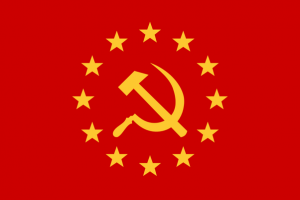(From the European Court of Human Rights press release)
An Austrian woman had her appeal rejected and will have to pay 480 Euros for truthful comments she made at 2 seminars calling Muhammad a paedophile for marrying a 6 year old girl.
An interesting side note, as exampled in the video, Islam is not a race, and hence criticism of it is not “racism”. That claim is often used to derail legitimate debate.
For some context, the European Court of Human Rights (ECHR) is a European-based court in France where people can contest judgements if they claim human rights have been violated. This court will consider cases after other legal remedies have been exhausted in the home country.
Conviction for calling Muhammad a paedophile is not in breach of Article 10
In today’s Chamber judgment1
.
in the case of E.S. v. Austria (application no. 38450/12) the European Court of Human Rights held, unanimously, that there had been: no violation of Article 10 (freedom of expression) of the European Convention on Human Rights.
.
The case concerned the applicant’s conviction for disparaging religious doctrines; she had made statements suggesting that Muhammad had had paedophilic tendencies.
.
The Court found in particular that the domestic courts comprehensively assessed the wider context of the applicant’s statements and carefully balanced her right to freedom of expression with the right of others to have their religious feelings protected, and served the legitimate aim of preserving religious peace in Austria. It held that by considering the impugned statements as going beyond the permissible limits of an objective debate, and by classifying them as an abusive attack on the Prophet of Islam which could stir up prejudice and threaten religious peace, the domestic courts put forward relevant and sufficient reasons.
That was the summary of the case, The press release goes on to list the facts:
Principal facts
.
The applicant, E.S., is an Austrian national who was born in 1971 and lives in Vienna (Austria). In October and November 2009, Mrs S. held two seminars entitled “Basic Information on Islam”, in which she discussed the marriage between the Prophet Muhammad and a six-year old girl, Aisha, which allegedly was consummated when she was nine. Inter alia, the applicant stated that Muhammad “liked to do it with children” and “… A 56-year-old and a six-year-old? … What do we call it, if it is not paedophilia?”.
.
On 15 February 2011 the Vienna Regional Criminal Court found that these statements implied that Muhammad had had paedophilic tendencies, and convicted Mrs S. for disparaging religious doctrines. She was ordered to pay a fine of 480 euros and the costs of the proceedings. Mrs S. appealed but the Vienna Court of Appeal upheld the decision in December 2011, confirming in essence the lower court’s findings.
The facts were not really in question, just the findings
Decision of the Court
Article 10
.
The Court noted that those who choose to exercise the freedom to manifest their religion under Article 9 of the Convention could not expect to be exempt from criticism. They must tolerate and accept the denial by others of their religious beliefs. Only where expressions under Article 10 went beyond the limits of a critical denial, and certainly where they were likely to incite religious intolerance, might a State legitimately consider them to be incompatible with respect for the freedom of thought, conscience and religion and take proportionate restrictive measures.
.
The Court observed also that the subject matter of the instant case was of a particularly sensitive nature, and that the (potential) effects of the impugned statements, to a certain degree, depended on the situation in the respective country where the statements were made, at the time and in the context they were made. Accordingly, it considered that the domestic authorities had a wide margin of appreciation in the instant case, as they were in a better position to evaluate which statements were likely to disturb the religious peace in their country.
.
……….
.
The Court found in conclusion that in the instant case the domestic courts carefully balanced the applicant’s right to freedom of expression with the rights of others to have their religious feelings
protected, and to have religious peace preserved in Austrian society.
.
3
The Court held further that even in a lively discussion it was not compatible with Article 10 of the
Convention to pack incriminating statements into the wrapping of an otherwise acceptable expression of opinion and claim that this rendered passable those statements exceeding the permissible limits of freedom of expression.
The ECHR press release pretty much sums it up in 2 statements
(1) Criticising Islam can lead to religious unrest
(2) Protecting religious feelings (of Muslims) trumps free speech
Actually, the ruling and press release could be taken as a good sign that some religions simply do not belong in a Western country. If mere criticism can result in ”religious violence” then it is obviously incompatible.
The ECHR excused the practice, saying that it should be considered that child marriages were historically a reality. But switch that around. That historical reality would be considered paedophilia under today’s laws. So the statement is factually correct.
But before sounding too smug, the Liberal Party of Canada passed a non-binding motion (M-103) which
a) recognize the need to quell the increasing public climate of hate and fear; (b) condemn Islamophobia and all forms of systemic racism and religious discrimination and take note of House of Commons’ petition e-411 and the issues raised by it; and (c) request that the Standing Committee on Canadian Heritage undertake a study on how the government could(i) develop a whole-of-government approach to reducing or eliminating systemic racism and religious discrimination including Islamophobia, in Canada, while ensuring a community-centered focus with a holistic response through evidence-based policy-making,
(ii) collect data to contextualize hate crime reports and to conduct needs assessments for impacted communities, and that the Committee should present its findings and recommendations to the House no later than 240 calendar days from the adoption of this motion, provided that in its report, the Committee should make recommendations that the government may use to better reflect the enshrined rights and freedoms in the Constitution Acts, including the Canadian Charter of Rights and Freedoms.
Notice that Islam is the only religion mentioned in the motion. It should also be noted that the Liberals rejected an alternative motion that would passed the same intent, but with no mention to any specific religion.
No other religious group in the western world acts this way, or has to have certain laws passed to appease it.
Religion and Government should remain 2 separate entities. However, that becomes next to impossible when importing a culture that believes religious law should govern civil law. Another example of multiculturalism not working at all. This nonsense needs to stop.




